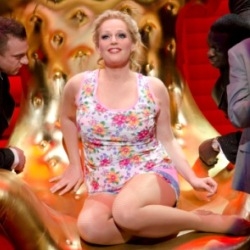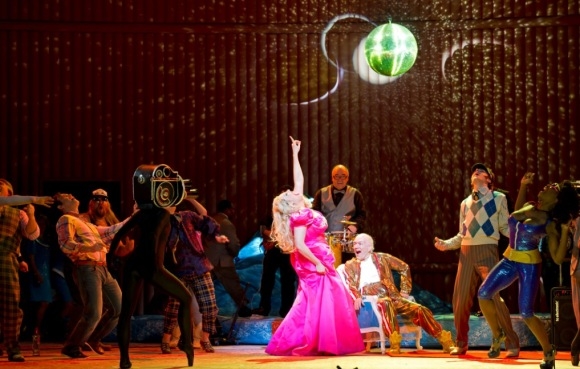Opera discounts: do they deliver?
The Royal Opera recently ran a promotional initiative in which under 25s were lured into the opera house at bargain prices (just £1-£25 for Mark-Anthony Turnage‘s Anna Nicole). Not surprisingly, it played to a packed house of youngsters keen to get the Royal Opera House experience and presumably attracted by a work that sounds less 'stuffy' than most of the company’s offerings.

© Bill Cooper
The thinking behind the promotion, it would seem, is that you get students and other young people across the threshold and you can break down the barriers to operagoing, thereby encouraging them to attend future performances. That would seem to be a reasonable piece of marketing thinking: invite them to sample the wares under safe conditions – affordable prices and an accessible work – and you’ll get them hooked.
But it could be that that’s just a piece of faulty intuitive thinking and the effect is actually the opposite.
Daniel Kahneman, the Nobel Prize-winning psychologist, whose brilliant book Thinking Fast and Slow lays out the theories on cognitive bias that he developed with the late Amos Tversky, talks about "the anchoring effect". It suggests that the human mind latches onto the first number presented to it and anchors itself upon it. So, if you are negotiating with someone, you pitch at a high level and then the number you settle on will be higher than the other person would have been initially willing to pay.
I’ve personally noticed myself doing this many times since reading Kahneman’s work. If I want to buy something and I see it at, say, £100, I find myself holding that number in mind. When I then see it at £50, I feel I’ve found a bargain (even if my first thought was that I was prepared to pay a maximum of £30). It works the other way round too. If I get something for free, I’m less likely to pay a high price for it in future. The freebie devalues the item for me (try getting a critic to pay for a ticket when she or he is thoroughly used to not paying!).
So, it’s possible that giving students and young people tickets to the Royal Opera for as little as £1 will make them think twice about paying considerably more for a ticket to another show.
Discounts are always a risky strategy. People frequently become addicted to bargain prices and look out only for discounted tickets, which has the effect of driving the yield down. This is something we’ve seen in west end theatre, where, apart from one or two shows, there is now an established culture of discounting. Getting a rock bottom priced ticket might even have the effect of putting people off attending again altogether unless you can match it on an ongoing basis.
It’s easy to have a big self-congratulatory success from initiatives such as the Anna Nicole one, but do they do more harm than good?
– Simon Thomas is a writer on opera and theatre and an experienced digital marketer in the entertainment industry
Do you agree or disagree with Simon Thomas's thoughts? Are you part of the Royal Opera's 16-25 target demographic, or do you work in the marketing industry? We'd love to hear from you so please feel free to add a comment.











